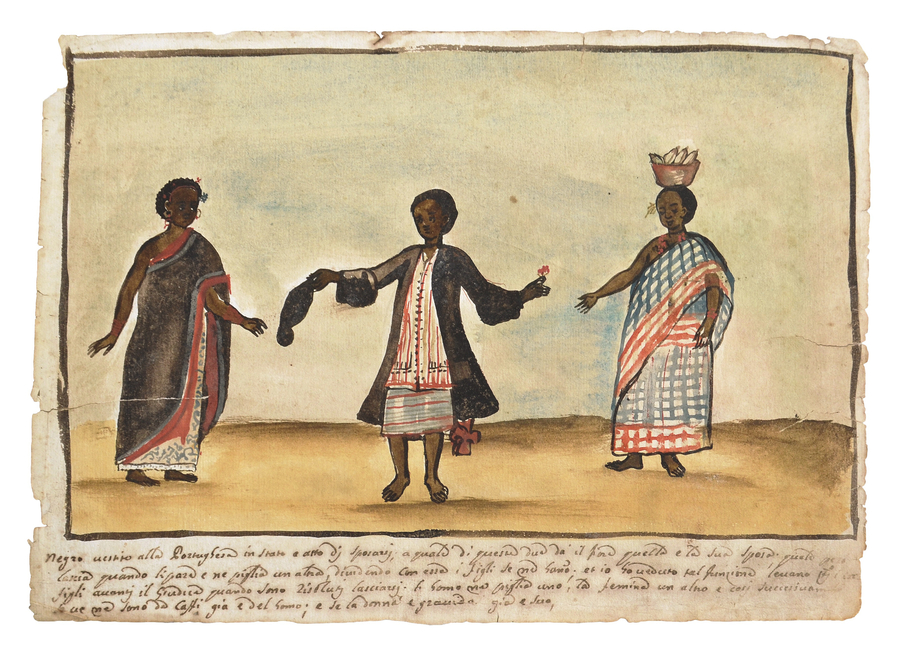PW005: Black man dressed in the Portuguese manner about to get married
Negro vestito alla Portughesa in stato e atto di sposarsi; a quale di queste due dà il fiore quella e la sua sposa; quale pero lascia quando li pare e ne piglia un altra, dividendo com essa i figli se ne han[n]o; et io ho veduto tal funzione. Levano tti i loro figli avanti il giudice quando sono risoluti lasciarsi; l’homo ne piglia uno, la femina un altro e cosi succesivamente, [se] ve ne sono da Caffi gia e del homo; e se la donna e gravida gia e suo
Black man dressed in the Portuguese manner in the state and the act of getting married; the one of these two [women] to whom he gives the flower is his bride; whom however he leaves when he pleases and takes another, dividing with her the children they have; and I have seen myself this function. They take all of their children in front of a judge when they have decided to separate; the man chooses one, the woman another, and so on and so forth, [if] there is an odd number of them, of course it is the man’s; and if the woman is pregnant, of course it is hers.

Add new comment